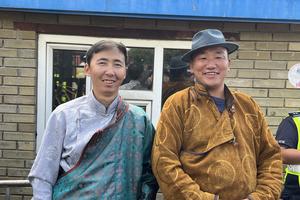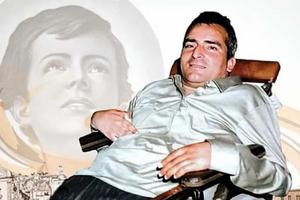Pope Francis Visiting One of the World’s Most Polluted Capitals This Week
A UN agency reported that the city’s smog was so toxic that Mongolian children living in a highly polluted district of Ulaanbaatar had 40% lower lung function than children living in the countryside.

While thoughts of Mongolia can conjure up images of nomadic peoples traversing wide open steppes on horseback, the country’s more densely-populated capital has the ignominious reputation of being among the most polluted capital cities in the world, especially in winter.
Pope Francis is set to land in the Mongolian capital of Ulaanbaatar on Sept. 1, which is the Church’s World Day of Prayer for Creation, a day the pope established in 2015 after publishing his landmark environmental encyclical Laudato si’.
As the Pope recently revealed that he is writing a second part to Laudato si’ that will address “recent environmental crises,” Francis is likely to make “care for our common home” a key theme of his Mongolian trip from Aug. 31 to Sept. 4.
The Mongolian capital’s air quality grew so toxic in 2018 that a United Nations agency issued a report deeming it a “child health crisis.” Measurements of fine particles in the air that can be absorbed from the respiratory tract into the bloodstream called PM2.5 found the level to be 133 times what the World Health Organization considers safe.
The polluted air is caused in part by settlements that encircle the city in what is called the Ger District, where poor families burn black market raw coal, as well as tires, plastic bottles, and other waste in their dwellings, called yurts, to keep warm in the cold winters. Four large coal plants in Ulaanbaatar also add to the pollution.
“Air pollution has become a child health crisis in Ulaanbaatar, putting every child and pregnancy at risk,” according to the UNICEF report.
The UN agency also reported that the city’s smog was so toxic that Mongolian children living in a highly polluted district of Ulaanbaatar had 40% lower lung function than children living in the countryside. A study at a Mongolian hospital found that seasonal air pollutants correlated strongly with a 3.6 increased rate of miscarriage in the capital. In response to public health consequences, the Mongolian government banned raw coal consumption in 2019, but the city is still dealing with the fallout of ongoing air pollution.
Mongolia is also set apart by its rich mineral resources, including uranium, copper, gold, and other rare earth reserves. Many foreign countries, including Japan, the U.S., and China, have mining ventures in Mongolia. Pope Francis could also highlight this issue, as he did in his trip to the Democratic Republic of Congo earlier this year where he made headlines by calling out exploitative mining saying, “Hands off Africa!”
Pope Francis is reportedly planning to release the new updated version of Laudato si’ on the feast of St. Francis of Assisi on Oct. 4, according to Hungarian President Katalyn Novák, who met with Pope Francis at the Vatican on Aug. 25.
During Pope Francis’ four-day trip to outer Mongolia this week, the Pope is scheduled to meet with government leaders, engage in interreligious dialogue, and offer Mass for the country’s small Catholic population.
- Keywords:
- mongolia
















